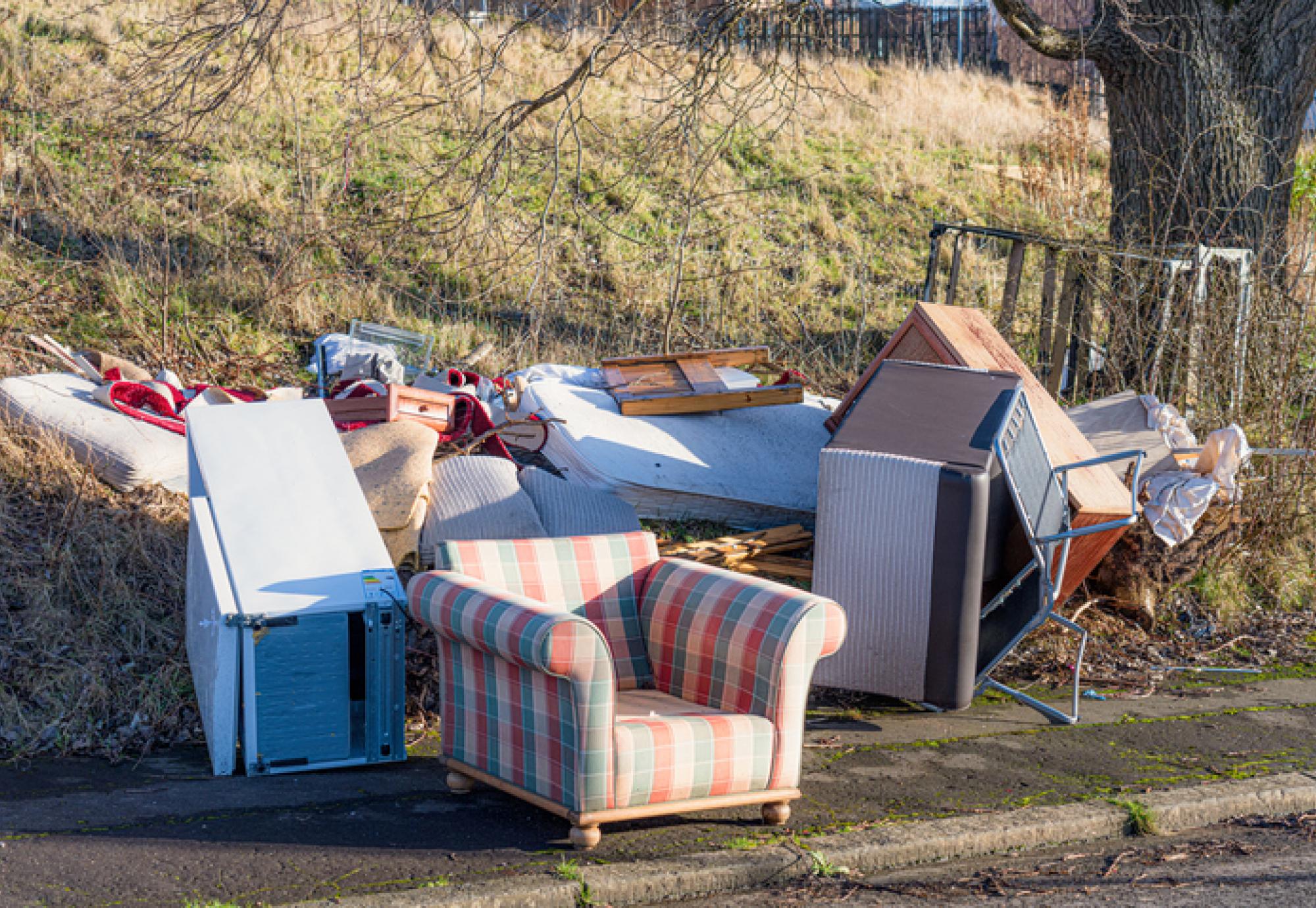A number of councils in England will be awarded grants to tackle fly-tipping through trial projects, including CCTV to target hotspots, the government has announced.
Fly-tipping is a crime which blights communities, poses a risk to public health and the environment, costing up to £392m a year.
Councils dealt with 1.13 million fly-tipping incidents in 2020/21, up by 16% from 2019/20.
The council grants, totalling £450,000, will help fund a range of projects, such as:
CCTV
The use of covert and overt CCTV cameras at hot-spot locations can help to reduce the numbers of people dumping waste illegally, while also providing further evidence to help identify those that continue to offend.
Artificial intelligence
Buckinghamshire Council plans to use a combination of AI enabled rapid deployable cameras (RDC) and automatic number-plate recognition (ANPR) cameras to provide an alert to any visible left items at fly-tipping hotspots in real-time and link them to the vehicle that deposited them, allowing officers to rapidly investigate.
Delivering education to communities on fly-tipping
Funding for Durham Council for CCTV will lead to individuals being directed to the council’s self-funded digital educational tool for those issued with an on-the-spot fine for fly-tipping.
The tool aims to educate and encourage long-term behaviour change and completion reduces the amount of the fine.
‘No bags on the street’ policy
Newham Council will receive funding to prevent bags being on the street in front of business premises which can attract additional waste.
They will scale up their trial of containers to house residential and commercial waste, which resulted in a 24% reduction in fly-tipping.
Single items, such as furniture and mattresses, accounted for 16% of total fly-tipping incidents in 2020/21, rising by 7% from the year before.
To tackle this, the government is considering measures, such as eco-design, ecolabelling and extended producer responsibility, where manufacturers are responsible for the costs of dealing with waste created by their products.
With a number of local authorities charging for construction waste, such as paving slabs and roofing materials, the government is today consulting on amending legislation so that householders cannot be charged for DIY waste at recycling centres.
The government banned ‘backdoor’ charges on local residents disposing of household rubbish at household waste centres in 2015 and since then guidance has made clear that this includes DIY household waste.
However, around a third of councils still charge for certain types of DIY waste, using rules designed for construction waste.
The changes outlined in a technical consultation will change this rule and could save households up to £10 for an individual item, for example, a sheet of plasterboard.
Alongside this, a call for evidence on the use of booking systems at recycling centres will also be launched today.
Some of these were brought in when restrictions were imposed during the pandemic, amid concerns these could be making it harder for people to dispose of their waste and increasing the risk of fly-tipping.
Commenting, Environment Minister, Jo Churchill said:
“When it comes to fly-tipping, enough is enough. These appalling incidents cost us £392m a year and it is time to put a stop to them.
“I want to make sure that recycling and the correct disposal of rubbish is free, accessible and easy for householders. No one should be tempted to fly tip or turn to waste criminals and rogue operators.
“Furthermore, the funding that we have announced for local authorities today will help them trial innovative new projects to put a stop to fly tipping. We will learn from the successes and replicate them.”
The action announced today comes after plans to reform the waste industry were launched by the government in January.
You can watch the full PSE365 Public Sector Decarbonisation in Association with Liberty Charge virtual event on demand here.



















